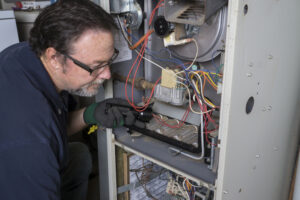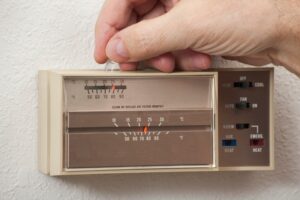Are Your Ducts Properly Sealed and Insulated? They Should Be
If your home has a forced air system, you have ductwork that transports the heated or cooled air and distributes it throughout the house. Making sure the ducts are properly sealed and insulated will keep home energy costs as low as possible while keeping your home comfortable in the process.
Sealing Ducts
Ducts are made of fiberglass, aluminium, steel, fabric, sheet metal, and other materials. In many homes, up to 20 percent of the heated and cooled air is lost as a result of leaks and holes throughout the ductwork. It is critical that you make sure your home’s ductwork is leak-free and securely fastened at the seams.
There are a few signs that can indicate leaks in your home’s ductwork.
-
Your heating and cooling bills have increased without any change in your use of the system. If your ducts have leaks, air is not flowing effectively through the system. Your air conditioner will, therefore, have to work harder to provide more comfortable temperatures. This increased energy consumption in turn drives up your energy bill.
-
The inefficient airflow will also make it difficult to maintain comfortable temperatures in one or more rooms in your home, regardless of the time of year. The air might also feel stuffy
-
Reduction in air quality. Leaky ducts can cause contaminants to pollute your indoor air. Contaminants can include dust, bacteria and pollen. Excessive accumulation of dust throughout your home could be a true sign of problems with your ducts.
-
You notice a difference in the pressure come through the vents.
Apart from introducing viruses and bacteria into your indoor air, leaky ducts could result in more serious problems such as back drafting harmful gases into your home. Any gas leaks from your water heater, furnace or stove, for example, could result in harmful substances such as carbon monoxide (CO) entering your indoor air. Ensure that you have carbon monoxide detectors installed in your home to monitor CO levels. If you suspect leaks in your home’s ductwork it is best to contact a professional HVAC contractor who has the knowledge, expertise, and equipment to properly seal the ductwork. A professional contractor is a good idea particularly if you have extensive ductwork in hard to access areas.
Your contractor will use items such as duct mastic to seal the seams and joints of your ductwork. There are different types of materials that can be used to repair ductwork. Your contractor will be able to select the type that is most appropriate and effective.
Insulating Ducts
Another concern besides leaks in the ductwork is how well it is insulated. If you have ductwork running through non-conditioned areas of your home like the attic or basement, you may be losing some of the conditioned air through the ductwork. Insulation will reduce heat transfer via the ducts. During the cooling season, warm air from the unconditioned spaces around the ducts will affect the air passing through the ducts, making it harder to cool your home. The same is true during the heating season, where warm air passing through the ductwork will be affected by the colder air surrounding the ducts. In both cases, the energy-efficiency of your system will be reduced as it has to work harder to provide the right temperatures to your home. If you are making repairs to the ductwork, it is a good time to also add insulation to the ductwork in the unconditioned parts of your home.
Save energy, and improve your comfort and indoor air quality with effective duct sealing and insulation. If you need an experienced and reliable HVAC contractor to make sure ducts are properly sealed and insulated, contact Climate Master Mechanical Contractors, Inc. at 708-597-5470. We’ve proudly served our neighbors in Chicagoland for over 27 years.
Image Provided by Shutterstock.com
You May Also Like

3 Ways Ductwork Impacts HVAC System Performance in Mokena, IL
Ductwork is critical to making any central HVAC system work efficiently. Here are three ways your ductwork influences the performance of the… Continue Reading 3 Ways Ductwork Impacts HVAC System Performance in Mokena, IL…

3 Furnace Odors and What They Mean in New Lenox, IL
When you first turn on a brand-new furnace, you might expect a few mild odors to appear as the system establishes itself.… Continue Reading 3 Furnace Odors and What They Mean in New Lenox, IL…

Do I Need to Replace My Old HVAC Thermostat in Mokena, IL?
A thermostat is like the brain of your HVAC system. If it doesn’t function properly, no part of the HVAC system in… Continue Reading Do I Need to Replace My Old HVAC Thermostat in Mokena, IL?…
